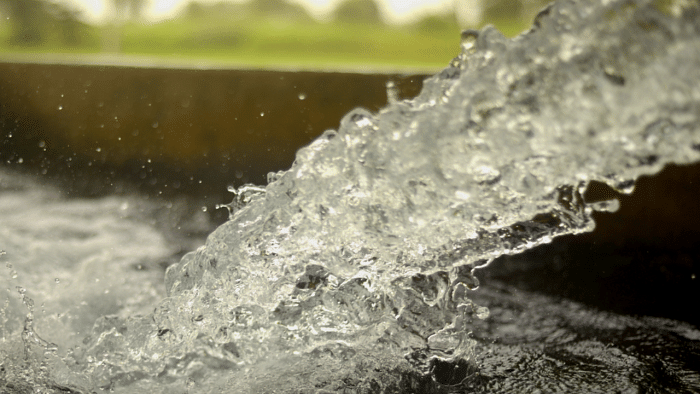
Representative image of groundwater.
Credit: iStock Photo
Due to the ongoing water crisis in Bengaluru, the Bengaluru Water Supply and Sewage Board (BWSSB) has been implementing measures to address the situation. Some of these measures include banning the use of potable water for non-essential purposes and restricting the drilling of borewells by private parties by invoking Section 11 of the Karnataka Ground Water (Regulation and Control of Development and Management) Act, 2011. One of the reasons cited by the BWSSB for these measures is the increase in unscientific drilling of borewells in the city, leading to the depletion of groundwater levels. Therefore, after invoking Section 11, which pertains to “notified areas,” private players cannot drill borewells in the city without prior permission. However, this is a temporary solution, as residents have previously asserted their right to drill borewells within the land they own under the Easements Act, 1882.
An obstacle hindering the state government from asserting control over groundwater resources is the Easements Act, 1882, which grants landowners an unencumbered right over the use of their land. Additionally, the law stipulates that landowners possess a prescriptive right to pollute air or water above and under their land, absolving them of liability for over-extraction of water resources.
There is a need to amend the law on easements to exclude groundwater from these provisions. Water, as a natural resource, is considered a “common resource” that is entrusted to the State for safeguarding in all its forms. However, groundwater remains entangled due to the technicality of private ownership of land, despite being a natural resource of water akin to lakes, ponds, rivers, etc.
The Supreme Court in the case popularly known as Span Motel applied the public trust doctrine to protect navigable waterways and noted that “certain resources like air, sea, waters, and forests have such great importance to the people as a whole that it would be wholly unjustified to make them a subject of private ownership.” Although the doctrine traditionally only restricts itself to navigable waterways, the single-judge bench of the Kerala High Court in Plachimada sought to apply the said doctrine to groundwater. The court stated that groundwater was like a public good, to be held by the State in public trust, and could not be treated as private property. However, this was overturned by the division bench of the same High Court. Therefore, this warrants a legislative change.
Karnataka can make a state amendment to the Easements Act instead of waiting for an amendment by Parliament. In 2019, a former MP from Andhra Pradesh, Lavu Sri Krishna Devarayalu, introduced a private members bill to amend the Easements Act, which was aimed at derecognition of groundwater as a component of the property right.
In addition, there is a need to relook at the Karnataka Act, which falls short in several aspects. The law has constituted an authority for groundwater management and is primarily aimed at the regulation of borewells. However, the law needs to aim at conservation, which would at least express the state’s interest in ensuring water is a common resource it can protect. For example, the state government can draw inspiration from the Kerala Groundwater (Control and Regulation) Act, 2002, which clearly states that it is aimed at conservation, regulation, and control of its extraction, whereas the Karnataka law simply aims at control of development and management of groundwater. It does not imbibe conservation principles into the Act and merely acts as a rubber stamp that provides permissions to drill borewells.
As is the case with Bengaluru today, areas over-reliant on private borewells are facing the brunt of depleting groundwater. A report by the Central Ground Water Board in 2023 indicates that both Bengaluru urban and rural areas exhibit 100% over-exploitation of groundwater resources, resulting in the net groundwater available for future use falling to zero. A prominent problem is that not everyone in a city or a state will be living near water-rich areas. The current regime allows people with lands near water-rich areas to have better access to groundwater, while it needs to be a resource that is conserved and redistributed by the State on a need basis.
In essence, it is essential to recognise that groundwater resources are abundant in areas with large water bodies, such as lakes. Moreover, the Cauavery basin faces constant threats, with reports highlighting the severe loss of vegetation around prominent lakes such as Halasuru Lake in Bengaluru. All of these are contributing factors to the water crisis that the city is currently facing and will continue to face year after year, unless urgent steps are taken.
(The writers are Research Fellows at Vidhi Centre for Legal Policy, Karnataka)